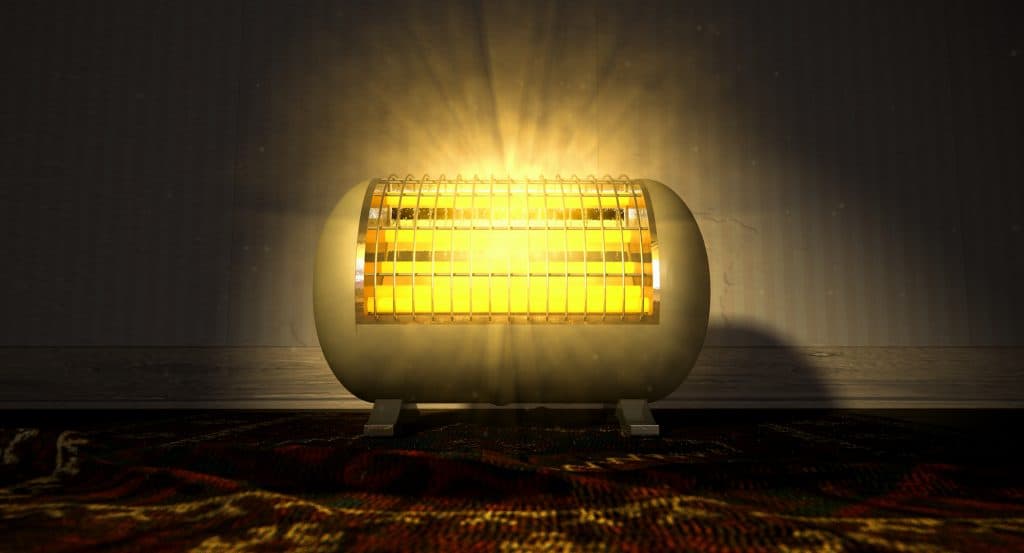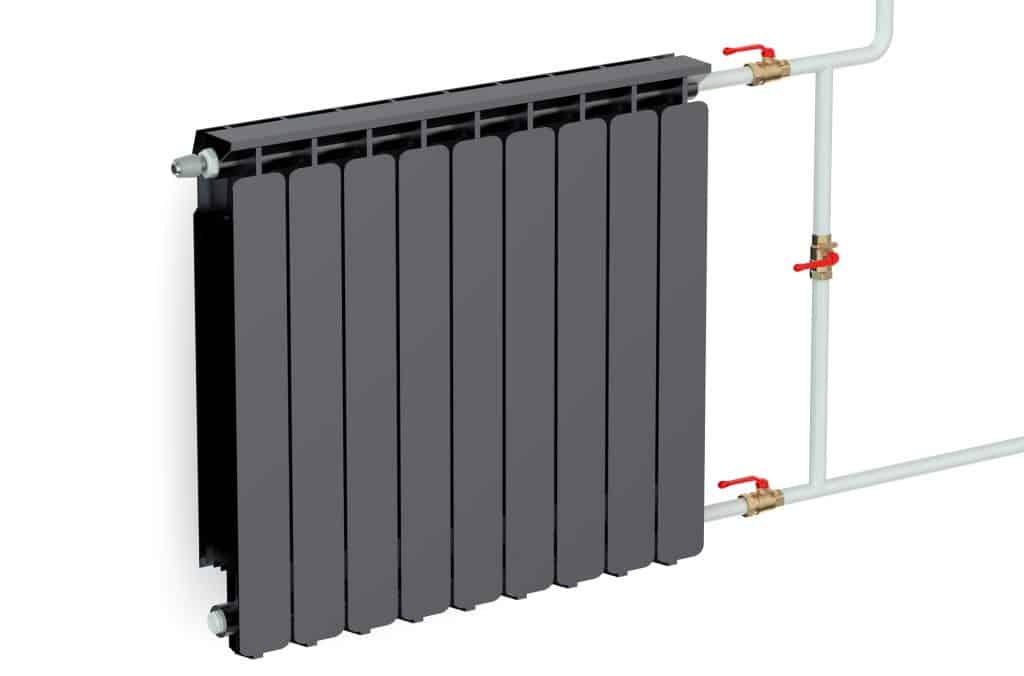How Much Electricity Does A Space Heater Use?

When it comes to your electricity bill, your choice of electric appliances (and how effectively you use them) can have a significant impact. Electric space heaters provide a quick and efficient way to heat small to moderate-sized spaces and rooms in winter and have the added benefit of not requiring fuel to run.
However, this speed and convenience may come at a cost. So just how much electricity does a space heater use, and how can you use this knowledge to save money on your electricity bill? Well, if you use a space heater, read on to find out how this small device might heat up your home without heating up your wallet.
How Do Space Heaters Work?
Different types of space heaters are available in the market in terms of size, shape, output, and power consumption. They use either convection, radiant heat through infrared light, a fan, or another type of heating element to heat cool air, which rises and makes way for cool air to come in and also get heated, working to minimize heat loss and block out cold drafts.
Electric heaters also beat out other varieties of the heater, being more efficient than gas heaters (which tend to leak heat), and by not producing fumes like older portable heaters, such as kerosene heaters for example.
How Much Electricity Does A Space Heater Use?
The first element in finding out how much electricity your space heater uses is the wattage. This can be found on the product’s label, in the manual, on the manufacturer’s website, or by contacting the heater company directly. Space heaters usually range from 750 to 1 500 watts. Most electric space heaters run at 1 500 watts, so we will use that number in our examples for calculating electricity use.
Secondly, your space heater use in hours per day will impact how much energy it uses. This is why it is important to have a heater that is the right size for your space and to keep your usage lower (possibly through purchasing a heater with a thermostat or a timer) to help incur fewer costs.

How Much Does It Cost To Run A Space Heater Per Hour?
To ascertain the cost of using your space heater, you’ll need to know the electric rate you are currently paying. The residents of each U.S. state pay different average electricity rates per kilowatt-hour, due to various reasons. For example, in North Carolina, the average rate is 9.25c per kWh. However, if you live in a deregulated U.S. state, you can find a cheaper electric rate in the competitive energy market that you can switch to.
Once you know your electric rate, you can then use this number to calculate the amount.
Let us give you an example:
First, to get kilowatts from our heater wattage, divide by 1000.
e.g. 1 500 w / 1000 = 1.5 kW
Then, to get the cost per kilowatt-hour, multiply the kW by your rate.
e.g. 1.5 kW X 9.25 c = 13.9 c per kWh.
Now, depending on the hour many hours per day you use the heater, we can determine the cost of running your space heater year-round!
How Much Does It Cost To Run A Space Heater Per Day, Per Month, Per Year?
Because running a space heater overnight is not recommended for safety reasons, we will use an example of using your heater for eight hours a day.
To continue our previous example:
- Running your heater per day (8 hours): 8 hours X 13.9 c per kWh = $1.11/day
- Using your heater for 8 hours a day per month: $1.11 X 30 = $33.3/month
- We will assume you use your heater for around six months of the year during the colder periods, but you can adjust this step for your situation depending on how much you use your heater. Last step:
- Heater cost per year (6 months use) = $33.3 X 6 = $199.80/year
So there you have it! You can plug in your own numbers and use these steps to find out how much your heater is costing you. As you can see from our example, using a space heater has the potential to save you a lot of money on your electricity bill.
How Can I Save Money With My Space Heater?
To save yourself some money on the cost of using your heater, simply work to change any of the above variables. A few ideas would include buying an eco-friendly model (may use 750 kW instead of 1 500 kW, halving power consumption), using a model with a timer or thermostat (or simply being more aware and turning it off) to decrease the hours you use the heater when it is not needed, or to find a better rate to decrease your cost per kWh.
Also consider that while you are using your space heater, you can turn down your central heating and use your portable heater to just heat the spaces your using, when you’re using them. And of course, close your doors and windows properly when your heater is running to save losing any of that valuable warmth!

Is It Cheaper To Run A Space Heater Or Electric Heat?
The size of the room you intend to heat will determine this. A space heater uses 10 watts of heating power per square foot, so the aforementioned 1 500 watt heater will heat up to 150 square feet, or the average-sized bedroom. The fact that a space heater is portable means you can use it to warm up just the spaces you are in, rather than use a central electric heater that will take much more energy to warm your entire house.
A couple of considerations regarding the size of your space heater: using a big heater to warm a small room will waste energy, and in contrast, a small heater will not ‘eventually’ warm up a room that is too large for its output. Make sure the size of your heater and where you place it are suitable for your needs.
How Much Electricity Do Different Styles Of Heaters Use?
Other styles of heaters, like baseboard heaters, tower heaters, or wall heaters, can be used depending on the size and function of the space you wish to warm up. Their electricity use will depend on similar factors to a space heater, but you’ll want to do your research and conduct a similar type of calculation to determine the energy use of whichever unit you’re considering.
We hope we’ve helped you make a more informed decision around the best options for warming the spaces in your home. Don’t forget to source the best electric rate in your state to find out how much you could save!
Updated on



